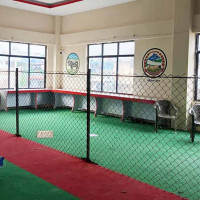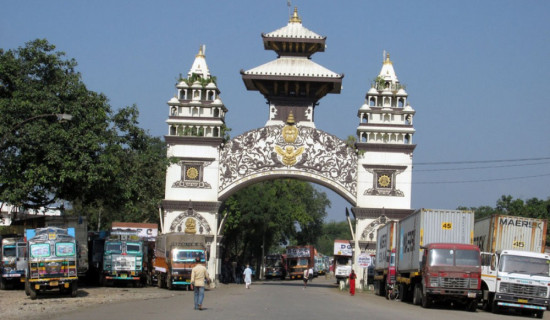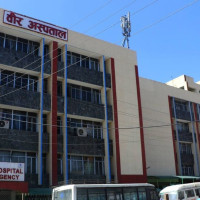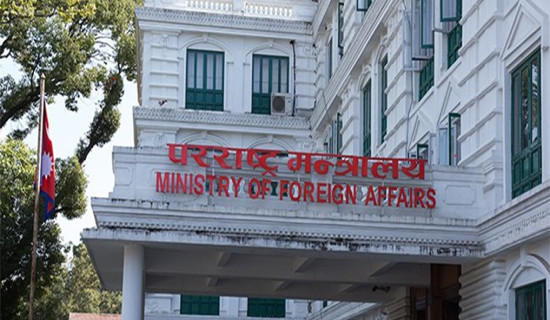- Wednesday, 4 March 2026
Promote Meritocracy In Universities
Aldrian Wooldridge, a world-renowned columnist for the London-based “The Economist” journal, has written a book titled “The Aristocracy of Talent: How the Meritocracy Made the World’, which was an instant hit and stole the global limelight. In this book, Wooldridge has argued that universities should contribute as the forerunners of meritocratic revolution. He brings to fore the cases of Great Britain, France and the United States, where universities have been made resourceful enough and equipped to usher in meritocratic revolution. As the exalted meritocratic machinery, the universities helped the societies to transform so thoroughly that the impact was felt not only in the economic realm but also in all spheres of society, including politics.
In Great Britain, not only those educated in Oxford and Cambridge universities but also trained in public grammar schools, scientists and technicians have been instrumental in stoking the heat of technological revolution and political transformation.
It is said that the first-rate research conducted in universities can make the country richer as well as wiser. Great scientists produced by the universities can turn atoms into atomic energy, great social scientists can solve problems like poverty and illiteracy and great scholar administrators can extend the rule of reason and help enhance the values of good governance, writes Wooldridge.
Multiversity
Likewise, Clark Kerr - the president of the California University, in his widely reviewed book "The Uses of the University”, states that the university needs to be conceptualised as a multiversity, which means that its job is to help meet society’s multiple needs – economic, social, and cultural – and to serve multiple constituencies. Winston Churchill had enunciated in one of his speeches in the British parliament, saying, “Universities can survive only if they are enabled to nurse and keep the meritocracy safe and sound”. The Asian countries like China, Japan and Singapore have made rapid economic and technological progress by dint of their universities’ emphasis on meritocracy. Singapore’s economic model is built on two simple and bold ideas: that good government is essential to economic development and that meritorious people are essential to good government.
Singapore has globally ranked universities and institutes delivering competitive quality education. According to Wooldridge, “Singapore’s Lee Kuan Yew vies with the founding father of the US Constitution, Thomas Jefferson, for the title of the philosopher king for meritocratic idea”. Our neighouring country India has, of late, achieved rapid industrial and technological advancement because of the establishment of quality higher education institutions like the Indian Institute of Technology (IIT) modelled along with Massachusetts Institute of Technology in the US. It was the first prime minister of India, late Jawaharlal Nehru, who had held the vision of setting up advanced educational institutions as temples of learning.
However, in Nepal, the state of higher education institutions is very poor. This may be the reason why we are lagging in every realm of development. Scarcity of resources and poor emphasis on research and development aside, entrenched politicisation is at the core of the spoiled academic ambience in our academic institutions. Political parties and their sister organisations interfere with the working of the universities in such a blatant manner that authorities are barred from carrying out their mandates and responsibilities. Despite tall political pledges to insulate TU from political interference, student unions and unionised teachers tend to carry out obstructive and disruptive activities to vitiate the academic environment.
Prime Minister, ministers and government authorities are all consistently asking the students to stop the practices of carrying out disruptive activities to taint the sanctity of the academic institutions. However, no institutional reform has been initiated to contain the party-guided student unions from carrying out the actions that disrupt academic activities. The internal academic control, discipline and integrity have been severely compromised. Even the minimum rigour and sanctity of exams have not been maintained. It needs to be mentioned that the TU Service Commission's image has taken a beating due to alleged widespread compromise on the exam ethics and integrity during the previous years.
Partisan politics
Similarly, the TU's scheduled exams have also met with controversy for failing to keep a reasonable standard of care. Though the newly appointed may not be a politically identified person, his access to levers of political power and cozying up with the incumbent government should have been reportedly instrumental for his appointment. It is disconcerting to note that university teachers seem not committed to improving the academic environment, indicated by their indulgence in extra-academic actions. A scrutiny of the incidents of strikes and stoppages of academic actions executed by teachers shows that the demands put forth by teachers have no relation to reforming the academic environment and management of the university.
Admit it or not, whichever party holds the reins of the government, partisan politics has defined and dictated the destiny of the TU for long. There is a pressing need to give academic institutions in Nepal more autonomy and make them accountable for their respective performance. As public universities and campuses are indiscriminately politicised, public intellectuals and educationists articulate the need to separate academics and politics and protect the sanctity and integrity of academic institutions. The trade unionism that has made inroads into the realm of employees, teachers and students should be properly regulated and managed. Unless this is done in an earnest manner, our public institution of learning will rot in no time. The state authorities should be serious enough to salvage the university from the intractable crisis and transform it into a haven of quality and meritocracy.
(The author is presently associated with Policy Research Institute (PRI) as a senior research fellow. rijalmukti@gmail.com)

















